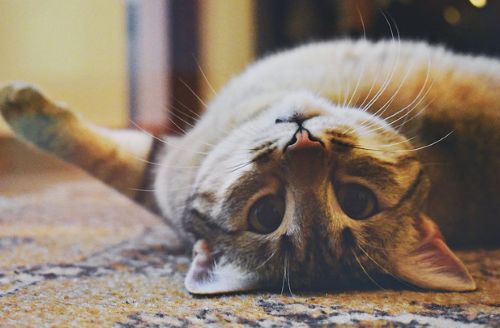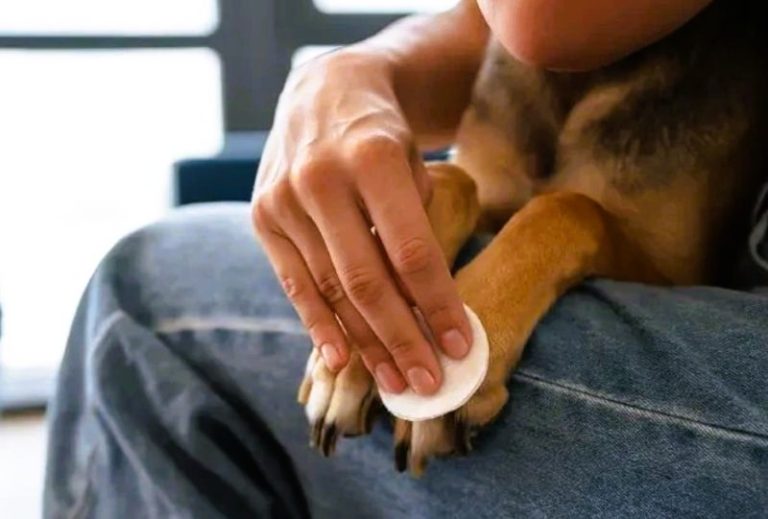

Are you providing your cat with optimal care to ensure its well-being?
Owning a cat provides companionship and happiness while requiring responsible care. The combination of more people adopting cats and higher healthcare expenses makes it essential to learn how to preserve your cat’s well-being.
This guide will provide you with proven methods to ensure your pet remains both happy and healthy throughout the years.
Inside This Cat Care Guide
- Essential Preventative Healthcare Measures
- Nutrition Fundamentals for Feline Health
- Exercise and Environmental Enrichment
- Understanding Common Health Issues
- The Importance of Pet Insurance Coverage
- Creating a Complete Wellness Plan
Essential Preventative Healthcare Measures
Your cat’s long-term health depends on implementing preventative care measures. Your cat needs consistent veterinary visits to ensure its health stays in peak condition.
Schedule Regular Checkups
Veterinarians generally advise adult cats to receive yearly wellness exams while senior cats (those over 10 years old) should visit their vets every six months. These checkups allow vets to:
- Perform thorough physical examinations
- Update necessary vaccinations
- Conduct dental assessments
- Screen for common health issues
By detecting health problems early you protect your cat’s wellbeing while reducing medical expenses. Early diagnosis of health issues enables more straightforward and economical treatment options.
Stay Current on Vaccinations
Core vaccines provide essential protection against diseases that could kill your cat. Your veterinarian can help you create a vaccination schedule that matches your cat’s lifestyle and potential health risks.
Don’t Skip Parasite Prevention
Fleas along with ticks and intestinal parasites pose significant risks to your pet’s health. Even indoor cats require continuous parasite prevention throughout the entire year. Pet owners have shown they value preventative care by significantly boosting their spending in response to recent findings.
Nutrition Fundamentals for Feline Health
The diet your cat consumes determines their health status and lifespan duration. Proper nutrition helps sustain both a healthy coat and strong immune system in cats.
Choose High-Quality Cat Food
Not all cat foods are created equal. Look for products that:
- The first ingredient on the label must be a specific animal protein source
- Avoid excessive fillers like corn and wheat
- Meet AAFCO standards
- Select food specifically formulated for your cat’s life stage whether they are kittens, adults or seniors.
The ideal diet for your cat varies based on their age, level of activity, and existing health issues. If you’re unsure about what to feed your cat, talk to your veterinarian for advice.
Monitor Weight and Portion Control
Obesity stands as the most prevalent preventable health issue among cats. Research data reveals that more than half of all cats in the United States struggle with being overweight or obese. Carrying too much weight elevates the likelihood of developing diabetes and leads to joint issues and heart disease.
Follow package instructions to determine correct food portions for your cat. Your cat’s treats should not exceed 10% of its total daily calorie intake.
Ensure Adequate Hydration
Because cats lack a strong thirst drive they frequently become dehydrated which leads to urinary problems. To increase water intake:
- Provide multiple fresh water sources
- Consider a pet water fountain
- Incorporate wet food into their diet
Exercise and Environmental Enrichment
A cat’s health relies on both physical activity and mental enrichment to avoid behavioral problems.
Create an Active Environment
Environmental enrichment is essential for indoor cats to fulfill their instinctual needs. A cat-friendly home should include:
- Vertical space (cat trees, shelves, perches)
- Scratching posts or pads
- Hiding spots and quiet retreats
- Interactive toys
Schedule Regular Play Sessions
Spend 15 minutes each day engaging your cat in active play sessions. Play with cats by using wand toys and laser pointers or providing treat puzzles which stimulate their hunting instincts.
Seniors cats find value in gentle playtime sessions. Staying active helps preserve muscle strength and joint flexibility and keeps your mind sharp.
Consider Training Activities
Cats have the ability to learn training despite what many people assume. Clicker training helps to enhance mental activity in cats and builds a closer relationship between pet and owner. Food puzzles engage feline hunting instincts while helping fast eaters slow down their meal consumption.
Understanding Common Health Issues
Knowledge of typical cat health concerns enables early detection of symptoms.
Recognize Warning Signs
Be alert for these typical health problems:
- Urinary tract disease: Frequent urination or straining
- Dental disease: Bad breath, drooling, difficulty eating
- Diabetic cats show signs of increased thirst and hunger even though they lose weight.
- Kidney disease: Increased urination, decreased appetite
Diarrhea and intestinal upset
The Importance of Pet Insurance Coverage
Unexpected illnesses and emergency veterinary care often lead to high expenses. Numerous cat owners in the pet insurance cost discussion thread recounted their experiences where insurance helped them avoid tough financial decisions during their pets’ health emergencies.
Understanding Pet Insurance Options
Between 2019 and 2023 the percentage of insured cats and dogs in the U.S. increased to 126%. The rising number of pet insurance policies shows pet owners understand insurance as an effective method to handle medical expenses.
When evaluating pet insurance plans, consider:
- Pet insurance plans present three main coverage types including accident-only coverage as well as options that cover both accidents and illnesses and comprehensive coverage.
- Deductible options
- Reimbursement percentages
- Annual coverage limits
- Exclusions for pre-existing conditions
Experts advise pet owners to enroll their cats in insurance when they are young and healthy before any health issues arise.
Calculating Costs and Benefits
Pet insurance premiums increase your monthly expenses but offer financial security against unforeseen veterinary bills. Consider these factors when evaluating pet insurance:
- The capacity of your finances to pay for unforeseen veterinary costs
- Certain cat breeds have specific predispositions to particular health conditions.
- Your cat’s age and current health status
- The veterinary care expenses typical for your geographical region
Creating a Complete Wellness Plan
Health maintenance requires a coordinated approach that integrates all aspects of cat care into one comprehensive wellness plan.
Partner With Your Veterinarian
The most valuable source of cat health information you have is your veterinarian. Create a personalized wellness plan with your veterinarian that meets your cat’s specific needs by considering:
- Age
- Breed
- Lifestyle (indoor/outdoor)
- Existing health conditions
- Vaccination needs
Keep Detailed Health Records
Create a file that documents your cat’s medical information including vaccination records and medical history.
- Vaccination records
- Medication history
- Test results
- Notes about behavior or health changes
- Weight tracking
Digital pet health apps enable you to organize health information while monitoring long-term trends.
Prepare for Emergencies
Be ready for unexpected health crises:
- Ensure you store your veterinarian’s emergency contact details for quick access
- Locate the closest 24-hour emergency animal clinic.
- Make sure to maintain a pet first aid kit in your house
- Consider taking a pet first aid course
Adjust Care as Your Cat Ages
Cats’ health needs change as they age. Senior cats (over 10 years) benefit from:
- More frequent veterinary exams (every 6 months)
- Adjusted nutrition for their changing metabolism
- Accommodations for decreased mobility
- Additional monitoring for age-related conditions
Wrapping Everything Up
To deliver optimal care for your cat you need to focus on both their physical health and mental wellbeing. Through these preventative care strategies your cat will live a better life and you’ll likely see them live longer with you.
Each cat functions as its own entity requiring personalized care. Investing time and resources into understanding and fulfilling your cat’s needs leads to long-term benefits of having a healthy and joyful companion.
Your efforts to learn about preventative healthcare choices together with nutrition needs and environmental enrichment as well as pet insurance make you an exceptional cat parent. Your pet relies on you for their healthy existence while these strategies prepare you to deliver the necessary care.


